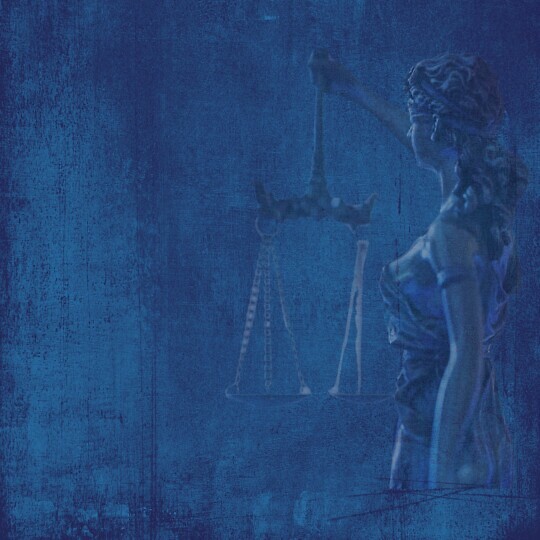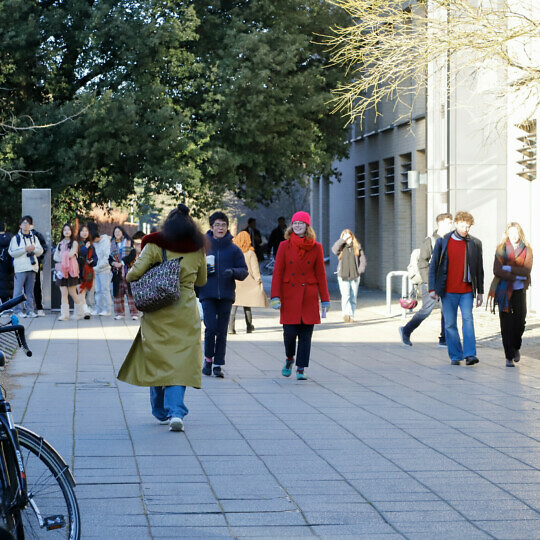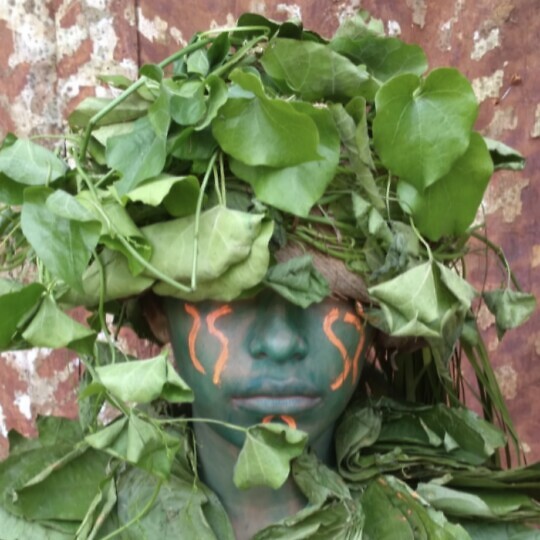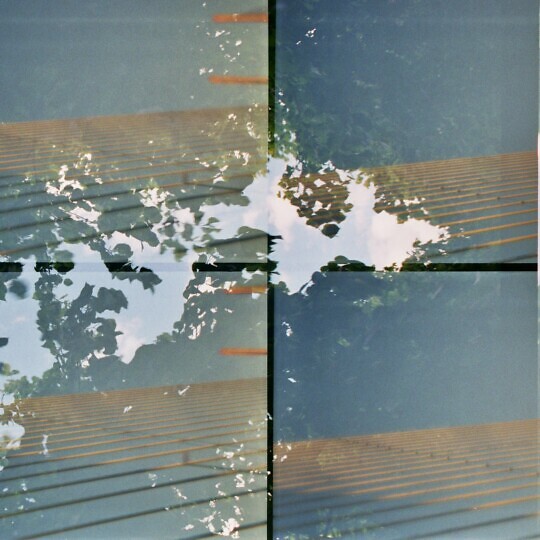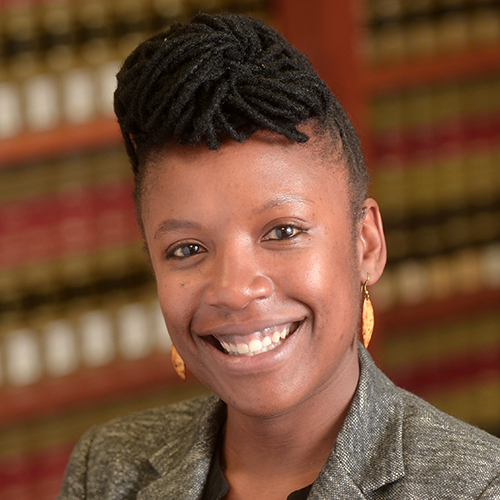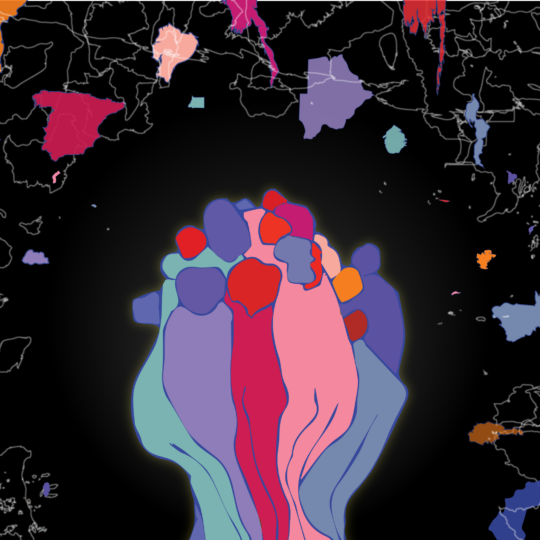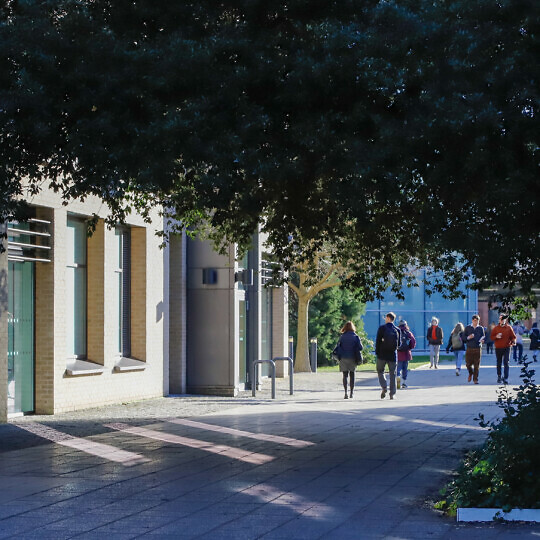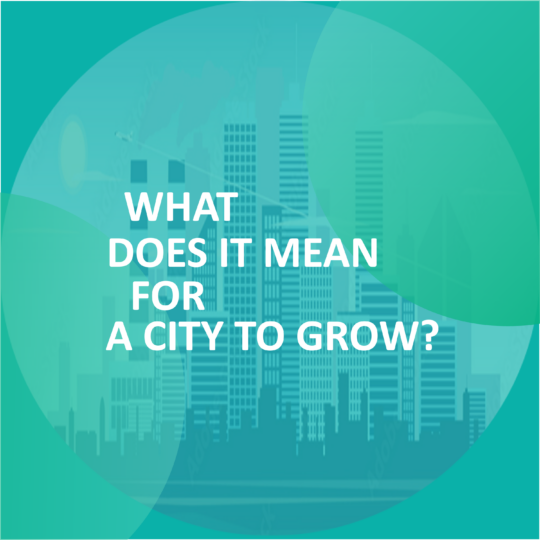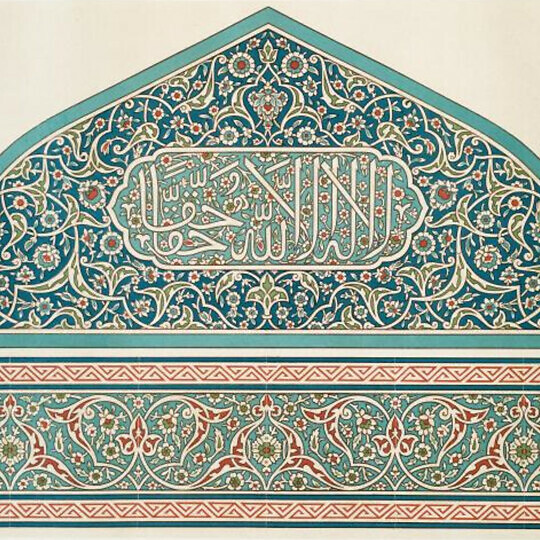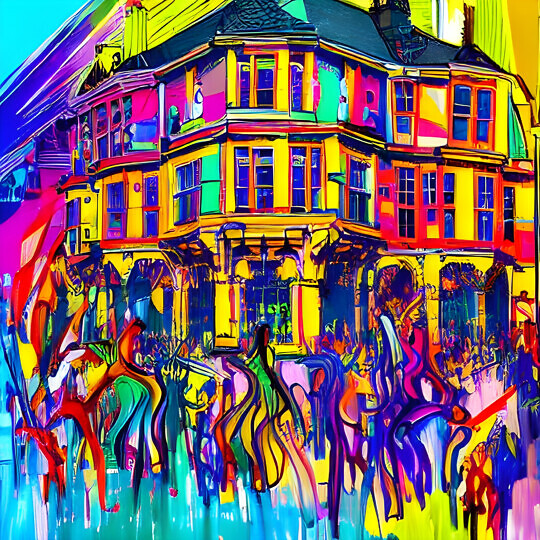| 19 May 2023 - 20 May 2023 | All day | Faculty of English, 9 West Road, Cambridge CB3 9DP | |
- Description
- Programme
- Call for papers
- Speaker biographies
Description
Convenor
Rhona Jamieson, University of Cambridge
Co-convenors
-
Michael Rizq, University of Cambridge
-
Alexander Hobday, University of Cambridge
- Tanya Kundu, University of Cambridge
-
Ally Louks, University of Cambridge
Speakers
- Tommy J Curry, University of Edinburgh
- Sarah Dillon, University of Cambridge
- Rita Felski, University of Virginia
- Constanze Güthenke, University of Oxford
- Jonathan Kramnick, Yale University
- Helen Small, University of Oxford
Summary
The urgency of scholarly analysis of trust, conspiracism, and the relationship between academy and state during the COVID-19 pandemic presents academics with an opportune moment in which to probe evolving and emergent considerations of the functions of criticism. Since Bruno Latour archly observed that critique has ‘run out of steam’, debate within the critical discussions that postcritique thinker Rita Felski has termed the ‘method wars’ have been sometimes fractious. This conference seeks to return, in a generous spirit of collaboration, to imperative questions regarding the humanities’ functions, methods, and contribution both within and beyond the academy.
Postcritique writing has productively reinvigorated assessments of the type of activity the humanities perform. But this growing body of work has also exposed the need for a widespread re-evaluation that both includes and ranges beyond affective philosophies of attachment and strategies of surface reading. Amongst recent interrogations of critical practices, posited solutions have ranged across actor-network theory, ordinary language philosophy, attention to cognitive approaches to texts, new modes of interdisciplinarity, sociological, digital, and quantitative methods, and a reconsideration of the public functions of academic research. There is a critical momentum building behind the question of what kind of activity ‘criticism’ is, and how best to describe and understand the activities of the humanities more broadly. Attending to this question requires both innovation and a rigorous interrogation of the disparities, synchronies, and intersections of critique and postcritique. As Eve Kosofsky Sedgwick delicately articulated, a hermeneutics of suspicion can be ‘one kind of cognitive/affective theoretical practice among other, alternative kinds’. Is it possible that these various methods might offer each other mutual support, or coexist in a disciplinary structure that thrives upon critical variety? This conference seeks to explore the question: What are the assorted functions of our criticism?
Supported by:


If you have specific accessibility needs for this event please get in touch. We will do our best to accommodate any requests.
Programme
| Day 1 | Friday 19 May 2023 |
| 8:30 - 9:00 | Registration I Room GR06/07 |
| 9:00 - 9:15 | Welcome and introduction I Room GR06/07 |
| 9:15 - 10:30 | Keynote 1 I Room GR06/07 Sarah Dillon (University of Cambridge) |
| 10:30 - 11:00 | Break I Room GR05 |
| 11:00 - 12:30 | Panel 1: Functions: public and professional viewpoints I Room GR06/07 David James (University of Birmingham) Christopher Newfield (Independent Social Research Foundation) Irene Peirano Garrison (Harvard University) |
| 11:00 - 12:30 | Panel 1: Pedagogy I Room GR04 Velda Elliott (University of Oxford) Lucy Rogers (University of Cambridge) Sam Waterman (Northeastern University London) |
| 12:30 - 13:30 | Lunch I Room GR05
|
| 13:30 - 15:00 | Special panel: Function across disciplines I Room GR06/07
Tommy Curry (University of Edinburgh) Constanze Güthenke (University of Oxford) Helen Small (University of Oxford) |
| 15:00 - 15:15 | Break I Room GR04
|
| 15:15 - 16:45 | Panel 2: Close reading I Room GR06/07
Ewan Jones (University of Cambridge) Mario Ortiz-Robles (University of Wisconsin-Madison) Jon Phelan (University of Cambridge) |
| 15:15 - 16:45 | Panel 2: Theory and praxis I Room GR04
Johannes Bruder (University of Applied Sciences and Arts, Northeastern Switzerland) and Maya Indira Ganesh (University of Cambridge) Suzanne Ewing (University of Edinburgh) Julie Stone Peters (Columbia University)
|
| 16:45 - 17:15 | Break I Room GR05 Please make your way to Divinity by 17.15
|
| 17:15 - 18:30 | Keynote 2 I Runcie Room, Faculty of Divinity Rita Felski (University of Virginia) |
| 18:30 - 19:30 | Drinks reception I Faculty of English |
| 19:30 | Conference dinner I Ridley Hall |
| Day 2 | Saturday 20 May 2023 |
| 8:30 - 9:00 | Registration |
| 9:00 - 10:30 | Panel 3: Truth and Trust I Room GR06/07
Rhona Jamieson (University of Cambridge) Adam Kelly (University College Dublin) Kathryn Telling (University of Manchester) |
| 9:00 - 10:30 | Panel 3: Lay Reading I Room GR04
Karen Coats (University of Cambridge) Tobias Skiveren (Aarhus University) Karolina Watroba (University of Oxford) |
| 9:00 - 10:30 | Panel 3: Enchantments I Room GR05
Tatyana Gershkovich (Carnegie Mellon University) Tanya Kundu (University of Cambridge) Hannah Lucas (University of Cambridge) |
| 10:30 - 11:00 | Break I Room GR03
|
| 11:00 - 12:30 | Panel 4: Whose Criticism? I Room GR06/07
Angelique Golding and Deirdre Osborne (Queen Mary University of London) Joseph Hankinson (University of Oxford) Gabriela Méndez Cota (Universidad Iberoamericana Ciudad de México)
|
| 11:00 - 12:30 | Panel 4: Medical Humanities I Room GR04
James Rakoczi (Durham University) Raj Telhan (UNC-Chapel Hill School of Medicine) Anita Wohlmann (University of Southern Denmark) |
| 11:00 - 12:30 | Panel 4: The Craft of the Critic I Room GR05
Chiara Graf (University of Maryland) Christina Lupton (University of Warwick) Michael Rizq (University of Cambridge) |
| 12:30 - 13:30 | Lunch I Alison Richard Building |
| 13:30 - 15:15 | Keynote 3 I Room GR06/07
Jonathan Kramnick (Yale University) |
| 15:15 - 16:45 | Panel 5: Critical Democracies I Room GR06/07
Matthew Sussman (University of Sydney) Adam Sutcliffe (Kings’s College London) |
| 15:15 - 16:45 | Panel 5: Negative Affects I GR04 Ally Louks (University of Cambridge) Arthur Rose (University of Exeter) and Doug Battersby (University of Bristol) Nick Smart (University of Oxford) |
| 15:15 - 16:45 | Panel 5: Critical Self-Inventions I GR05 William Ghosh (University of Oxford) Alexandra Kingston-Reese (University of York) Fergus McGhee (University of Cambridge) |
| 16:45 - 17:00 | Break I Room GR03
|
| 17:00 - 18:30 | Panel 6: Reading Time, Reading Value I Room GR06/07
Ben Davies (University of Portsmouth) Alex Hobday (University of Cambridge) Wassim Rustom (Norwegian University of Science and Technology) |
| 17:00 - 18:30 | Panel 6: Cognitions I Room GR04
Felix Budelmann (University of Groningen) and Katharine Earnshaw (University of Exeter) Benjamin Morgan (University of Oxford) Naomi Rokotnitz (University of Oxford) |
| 17:00 - 18:30 | Panel 6: Politics of Affect I Room GR05
Christopher Castiglia (Penn State University) Jennifer Devereaux (Harvard University) Lillian Hingley (University of Oxford) |
| 18:30 | Thank you’s and goodbye I Room GR06/07
|
Call for papers
Call for papers
What are the assorted functions of our criticism? In the midst of concerns about the relation between the academy and the state, trust in authority, and conspiracism, questions regarding ‘use’ and ‘function’ in the humanities are ever more pressing. Since Bruno Latour archly observed that critique has ‘run out of steam’, the discussions that postcritique thinker Rita Felski has termed the ‘method wars’ have sometimes been fractious. This conference seeks to return, in a generous spirit of collaboration, to imperative questions regarding the humanities’ functions, methods, and contribution both within and beyond the academy.
Postcritique writing has productively reinvigorated assessments of the activities that the humanities perform. But this growing body of work has also exposed the need for a widespread re-evaluation that both includes and moves beyond affective philosophies of attachment and techniques of surface reading. Amongst recent interrogations of critical practice, innovative strategies have ranged across actor-network theory, ordinary language philosophy, cognitive approaches to texts, new modes of interdisciplinarity, sociological, digital, and quantitative methods, and a reconsideration of the public functions of academic research. There is momentum building – in different ways, and across fields – behind the question of how best to describe and understand ‘criticism’, and the activities of the humanities more broadly. As Eve Kosofsky Sedgwick delicately articulated, a hermeneutics of suspicion can be ‘one kind of cognitive/affective theoretical practice among other, alternative kinds’. Is it possible that these various methods might offer each other mutual support, or coexist in an (inter)disciplinary structure that thrives upon critical variety?
Returning, with an additional emphasis upon plurality, to the question of ‘the function of criticism’ (Matthew Arnold, T. S. Eliot, Terry Eagleton), we invite papers of relevance to the subject of the conference, which might include considerations of:
- What we mean by ‘use’, ‘function’ and ‘value’ in the humanities
- The role of expertise both inside and outside the academy
- The cognitive value of texts and modes of reading
- The benefits and/or potential risks of thinking about functions
- The usefulness and/or limitations of such terms as ‘criticism’, ‘hermeneutics’ and ‘humanistic inquiry’ to define the activities of academics in the humanities
- Alternative metaphors for strategies of reading (beyond those of ‘surface’ and ‘depth’)
- New rhetoric with which to describe scholars’ engagement with texts and sources
- Practical examples of these strategies of reading
- Pedagogical technique and its relationship to critical practice
- The relations between ‘criticism’ and political power
- The status of ‘truth’ in the humanities
- The affective role of faith, conviction, or doubt in our ways of readin
- Historical exemplars for ‘criticism’ or method in the humanities
- The social and political operations of affects such as joy, desire, and paranoia in the reading of literary and non-literary texts
- The public value of criticism
- The role of the humanities after COVID-19
Confirmed Keynote speakers: Sarah Dillon (University of Cambridge), Rita Felski (University of Virginia) and Jonathan Kramnick (Yale University).
The conference will be in-person, at the University of Cambridge.
In one document please provide:
-
- Proposals for 20 minute papers (300 words)
- Paper title
- Participant biography (100 words)
Please send proposals by email to rnj23@cam.ac.uk
Deadline for submissions: 10 December 2022
Speaker biographies
Sarah Dillon
Sarah Dillon is Professor of Literature and the Public Humanities in the Faculty of English, University of Cambridge. Dillon’s work has ranged widely, with a persistent interest in interdisciplinarity, across literary theory and criticism (The Palimpsest: Literature, Criticism, Theory, 2007), feminist theory and film studies (Deconstruction, Feminism, Film, 2018), as well as science fiction, and literature and science studies. Her recent book, Storylistening: Narrative Evidence and Public Reasoning (2021), was co-authored with Claire Craig, Provost of The Queen’s College, Oxford, and former Director of the UK Government Office for Science. This book makes a powerful and original case for the value of attention to stories in the context of high-level policymaking and decision-making. Dillon and Craig urgently argue that decision-makers, and the public, must achieve ‘narrative literacy’ in order to understand the functions of stories, and that ‘narrative experts’ in the humanities need to be utilised as a crucial source of evidence provision.
Where stories and narratives are so often dismissed as irrational or dangerously fictitious, Storylistening isolates four relevant cognitive functions of stories in the context of public reasoning. Stories enable alternative points of view, create and consolidate collective identities, function as narrative models, and play a crucial role in anticipation. These functions are analysed and illustrated in relation to four areas of public decision-making and reasoning: climate change, the economy, nuclear power, and artificial intelligence. In a far-reaching and compelling argument, Craig and Dillon suggest that academics in the humanities should be as aware of the ‘craft and science of being an expert’ as are their counterparts in the sciences. Storylistening presents a method by which experts in the humanities can make their knowledge and skills available to decision-makers, and justifies why these attributes should be highly prized. The book is accompanied by the essay ‘Public Criticism’ (Textual Practice 2022) on the value of literary criticism in the twenty-first century, and the need for a diverse ecology of methodological approaches.
Dillon is also General Editor of the book series Gylphi Contemporary Writers: Critical Essays, serves on the Management Board of the University of Cambridge’s Bennet Institute for Public Policy, sits on the editorial boards of C21: Journal of Twenty-First Century Writing and Fantastika, and is working with Cambridge University Press on launching a new journal, Public Humanities. She is also a regular broadcaster for the BBC, having co-created, written and presented the documentary series Literary Pursuits (Radio 3, 2016-2019), and the Close Reading feature on Radio 4’s Open Book (2014-2016).
Rita Felski
Rita Felski is an academic, literary critic, and theorist. She is William R. Kenan, Jr., Professor of English at the University of Virginia, Niels Bohr Professor at the University of Southern Denmark, and former editor of the journal New Literary History. Since Uses of Literature (2008), her work on the ‘hermeneutics of suspicion’, reading practices, and postcritique have made an indelible mark on the landscape of literary criticism, and has had far-reaching consequences for how we understand the ‘use’—in the personal, political, and sociological senses—of literature today.
Felski’s most recent book, Hooked: Art and Attachment (2020), is arguably her most eloquent expression of some of these ideas. Drawing on examples from literature, film, music, and painting—from Joni Mitchell to Matisse—Felski seeks to return our idiosyncratic, affective responses to our understanding of what works of art can do, noticing the entanglement between interpretation and our own commitments, sympathies, and identifications. It is an argument which richly develops her influential, previous book, The Limits of Critique (2015), with its powerful revision of the state of ‘critique’ in literary study. While we in universities so often seek to ‘unmask’ and ‘demystify’ what is really going on in literary texts, Felski reminds us that this is only one possible methodology among many, and has considered the power of more open, reparative, receptive kinds of reading.
This is not Felski’s first time speaking at Cambridge. In 2021—although of course virtually—Felski followed F.R. Leavis, William Empson, Helen Vendler, Frank Kermode, and many others in delivering the Clark Lectures at Trinity College, Cambridge. (You can watch those lectures online here.) She is currently working on a new book about the importance of the Frankfurt School for literary theory, drawing on such concepts as ‘resonance’, ‘recognition’, and ‘disclosure’ for our understanding of the politics and sociology of literary texts. It is at this intersection between the ‘function’ and the feeling of reading that the importance of Felski’s work lies.
Jonathan Kramnick
Jonathan Kramnick studied at Cornell University for his B.A. and at Johns Hopkins for his PhD. He is currently the Maynard Mack Professor of English at Yale. Kramnick’s research focuses on eighteenth-century literature and philosophy, the foundations of literary theory and criticism, and interdisciplinary approaches to the arts. These three foci are brought together in his 2018 book Paper Minds: Literature and the Ecology of Consciousness, shortlisted for the Christian Gauss Award. Paper Minds is at once an excavation of a hidden tradition of antirepresentationlist (or direct) perception in eighteenth-century literature, an interdisciplinary endeavour connecting literature to cognitive science, and a defence of literary criticism as a distinctive methodology, with its own techniques for grasping its own ‘corner of the world’. One reviewer described the book, which balances interdisciplinarity with a defence of disciplinary pluralism, as ‘a quiet manifesto’. Kramnick’s next book, an extended version of his 2021 article Criticism and Truth, will be published by The University of Chicago Press in late 2023. It will continue to explore matters of interdisciplinarity, methodology, and literary studies, asking, fundamentally, ‘whether literary criticism tells truths about the world?’ Alongside his academic publications, Kramnick is also a regular contributor to The Chronicle of Higher Education, where he has tackled crucial issues, including the effect of the jobs crisis on faculty hiring practices and the impact of Covid-19 on the humanities.

